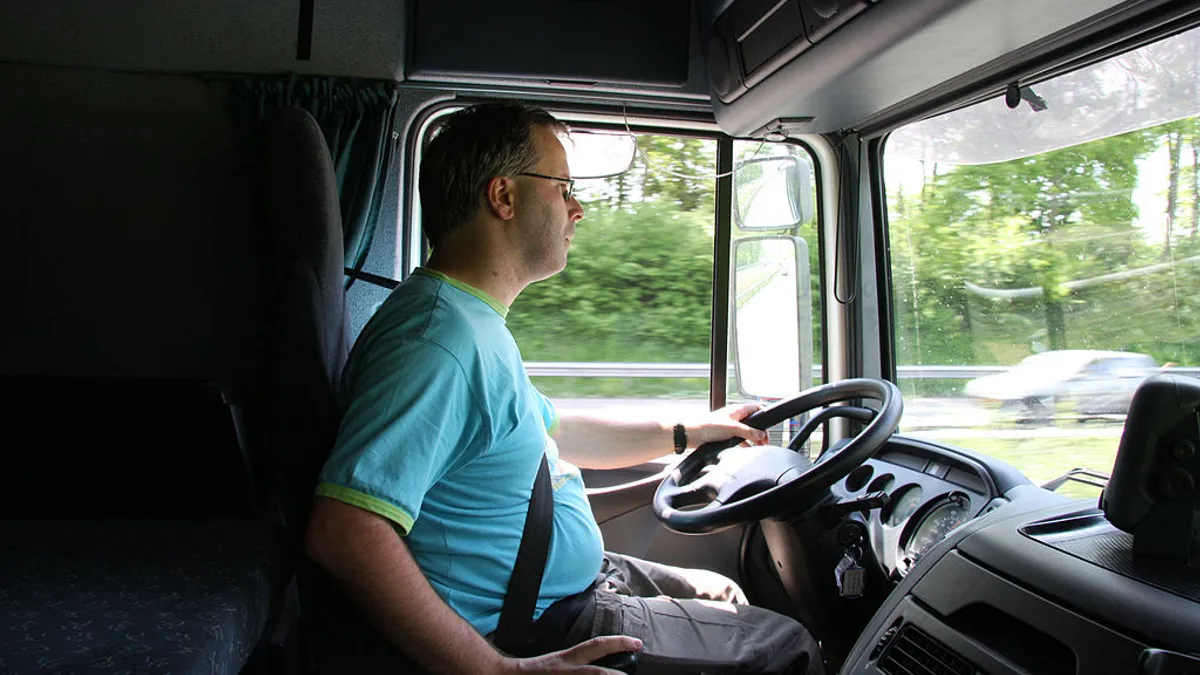Dive Brief:
- About 11.3% of U.S. jobs involve driving, either as a job or as part of job, according to a report conducted by economists David Beede, Regina Powers and Cassandra Ingram of the U.S. Commerce Department, the Wall Street Journal reported Tuesday.
- Those who drive for a living could be negatively impacted by a switch to autonomous vehicles (AVs), while those who drive as part of their jobs likely have transferable skills that could aid them in re-employment.
- According to the Economics and Statistics Administration, some on-the-job drivers may benefit from the greater productivity and better working conditions offered by AVs.
Dive Insight:
Continued speculation over the effect of driverless cars and trucks on the freight industry gain steam daily. As some auto suppliers doubt the speed of adoption, the White House suggested legislation last year to support drivers likely to be put out of work.
At present, the state of the industry can be summed up with one word: uneasy. Drivers are working harder and hauling more freight due to a growing driver shortage. While some attribute the problem to an aging workforce, others see the battle over pending regulations and walk away. The lack of qualified drivers and lawsuits over misclassification leads to potential need for 100,000 drivers or more in 2017 alone, according to Driver Solution.
If such industry blockades continue, the idea of driverless trucks could be a benefit rather than a loss. If drivers simply aren't available but freight must continue moving, automation could save the industry.














